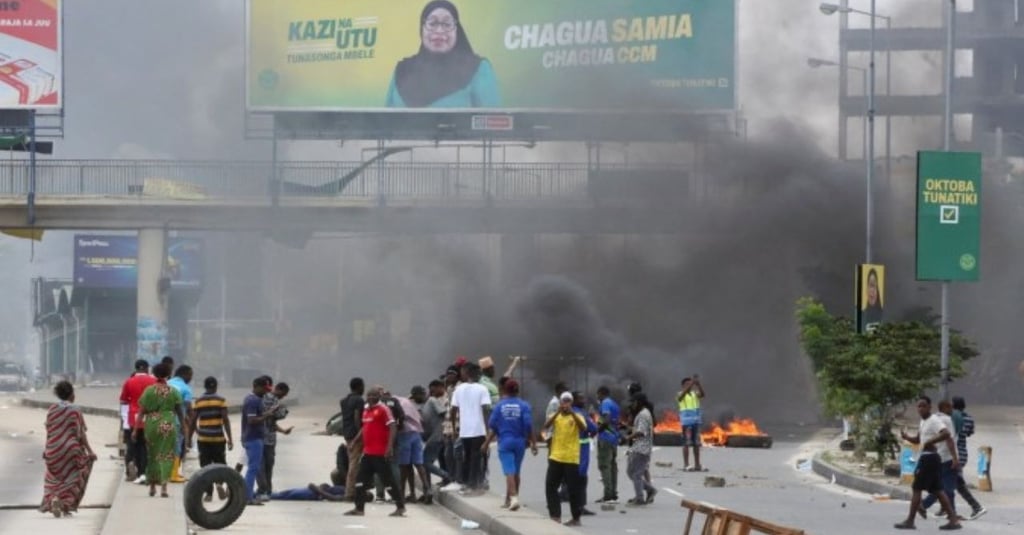The Deadly Price of Impunity in Tanzania: A Testament to Greed and Power Corruption- Over 700 Reported Deaths.
The Deadly Price of Impunity in Tanzania: A Testament to Greed and Power Corruption- Over 700 Reported Deaths. The ballot box is supposed to be the peaceful foundation of democracy, but in Tanzania this week, it became a fresh gravesite. After a widely disputed election, the streets of Dar es Salaam and Mwanza were stained red, not by the celebratory ink of civic participation, but by the actual blood of citizens who dared to protest. As security forces enforced a sweeping blackout, burying the truth of the vote, the official casualty count remained a quiet lie. The grim reality, whispered by opposition leaders and health workers, is that a government promised to its people has exchanged the rhetoric of reform for the language of the bullet, leaving hundreds dead and proving a fatal, familiar lesson: in Africa’s closing political spaces, impunity is the only thing that votes are guaranteed to purchase.
WORLD AFFAIRS
E. N. Quenti
11/1/20252 min read


DAR ES SALAAM, TANZANIA: The silence over Tanzania is deafening. As reports filter through a deliberate internet blackout, the world is confronted with a scene of profound state brutality: widespread post-election protests met with live ammunition, military curfews, and opposition claims of hundreds killed by security forces. This violence is not a spontaneous accident; it is the grotesque, yet predictable, climax of a long-running story of power corruption, political greed, and a deep-seated culture of absolute impunity.
The crisis stems from an electoral process that, in the words of international observers, was “neither free nor fair.” The ruling Chama Cha Mapinduzi (CCM) party, which has governed Tanzania since independence in 1961, did not merely seek victory; it sought coronation. In the months leading up to the polls, the democratic field was systematically bulldozed. Key opposition presidential candidates, including Tundu Lissu and Luhaga Mpina, were disqualified, arrested, or charged with politically motivated crimes like treason. When the main challengers are jailed or barred, the resulting vote is not an election—it is an administrative formality designed solely to rubber-stamp the indefinite continuation of single-party rule.
This is the manifestation of greed—not just for wealth, but for unchecked authority. The political elite has demonstrated an unyielding desire to retain the state apparatus at any cost, ensuring that critical oversight, media freedom, and judicial independence are neutralized. This centralization of power allows a select few to operate above the law, creating a system where dissent is not debated but ruthlessly eliminated.
When citizens took to the streets in response to these perceived frauds, demanding electoral justice, the response from the state was swift and fatal. Security forces, deployed across major cities like Dar es Salaam and Mwanza, reportedly used excessive and disproportionate force, including lethal weapons, against unarmed demonstrators. While the opposition claims a staggering toll of around 700 deaths, and international groups like Amnesty International report figures over 100, the precise number is secondary to the inescapable truth: the state has chosen violence over dialogue, and opacity over accountability.
This brutality is protected by impunity. Human rights organizations have for years documented a pattern of enforced disappearances, abductions, and torture targeting activists, journalists, and government critics. When the army chief labels protesters as “criminals” rather than citizens demanding their rights, it signals a state mechanism that is not merely defending order, but actively validating the use of lethal force against its own people.
The tragedy unfolding in Tanzania is a clear warning that the erosion of democratic institutions leads directly to the shedding of blood. The international community, especially regional bodies like the African Union and the East African Community, can no longer afford to treat Tanzania as a passive “beacon of stability.” Silence now is complicity. It is time for global diplomacy to pivot from tepid statements of concern to forceful action: demanding an immediate and independent investigation into the alleged killings, the unconditional release of all political prisoners, and the establishment of an accountability mechanism that breaks the long cycle of impunity. The people of Tanzania deserve the dignity of a government that serves them, not one that shoots at them to sustain its own corrupt grip on power.
